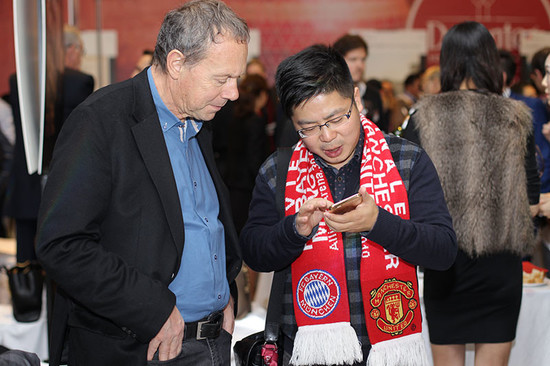As a professional who has worked in the wine business for 10 years, I have mixed feelings about addressing the subject of ‘professionalism’.

Firstly, I’d like to stress that I encourage everyone in the business to taste, read and learn about wine as much as possible. Study wine, attend courses, and sit exams. In the end, your level of knowledge and tasting skills are your foundation for finding a place in the trade.
On the other hand, as a young person working in the wine business, I wonder about what role professional studies have to play in personal development. Why is it that some people, even after passing WSET Level 3 or Diploma, still struggle to sound like a wine pro?
They may have read all the right books, but they still can’t sell a bottle of wine in a professional manner. They may have years of trade experience, but they still act like amateurs and struggle to be taken more seriously.
In our modern society, which places such importance on personality and individual opinions, certificates and titles are no longer enough to prove your authority — you must sound and behave like an expert too.
In other words, it is only once consumers recognise your professionalism that you really become a professional in the business.
Start spreading the word
The key to building your professional image among consumers and in the trade, lies in finding an appropriate channel to spread your good name.
As I see it, there are three ways to go about this. Let me talk you through them - from least to most effective.

Mobile phone and Social Media Channels
Social media (such as tweets, WeChat, videos, and live-streaming) is by far our main form of communication nowadays, and people usually send and receive this information via their mobile phones.
Although these mobile-based channels are often the most convenient way to speak your mind, they can be the least effective way to convey a professional image.
Why? Launch the WeChat app on your phone and take a look at your ‘Moments’ (equivalent to a Facebook ‘Timeline’). Now, do you judge your posts to friends and contacts to be professional?
Of course, you know that sending updates about your late night snacks doesn’t make you look professional. Posting endless photos of wine labels won’t help you either.
In fact, even if you were to post all your wine-related certificates and badges on social media, people still won’t take your word for it.
You might argue: 'But these are my personal friends and contacts, why do I need to worry so much about what I post?'
Well you do, if you want to build your authority in the trade. Especially among those contacts you would like to earn the respect of as a trusted wine expert.
You need to think professionally about how you present yourself on your profile, and run it like a business. You need to choose your words carefully, and express your opinion clearly. Finally, you need to showcase your enthusiasm for wine, as well as your hunger to expand your knowledge and improve.
In the end, a profile which functions as an online record of your thoughts and endeavours, during your journey as a wine student, can be far more convincing than a certificate.
But why would I say that mobile phones and social media channels are the least effective way to demonstrate your image as a professional?
Because everyone knows that these are the easiest and cheapest way to communicate, and everyone is trying to succeed through these channels.
Someone once joked that WeChat subscription accounts in China outnumber the people who actually read them — there’s probably truth in this.
To win your place in such a fierce battle, you will need to invest an immense amount of effort and passion. Therefore, before committing to running a subscription account, ask yourself: can you really make it to the top?

Another way for you to make your voice heard, though it can seem outdated, is print and paper.
When you have the chance to send a hand-written letter, don’t just send a text on WeChat. In our digital age, wouldn’t you be impressed by receiving a personal letter that begins ‘A few words on the Bordeaux 2010 vintage’? I would.
Seize the opportunity if you are lucky enough to be asked to write for a printed publication. Those remaining papers and magazines have managed to survive because they have a loyal and engaged readership. Plus, you will benefit from an experienced editor patiently reviewing every sentence of your article.
If you’re invited to write a book, get your hands moving right away. A published book with your name on it will make you radiate professionalism in front of those you want to impress.
Face to face
Using your voice and body language to communicate in person takes more time and energy, but it is the most powerful way to demonstrate your professional image.
As long as you ensure you come across passionately and professionally in person, you’re likely to be rewarded with equally engaging and long-lasting contacts. Wine tasting events, classes and dinners are all opportunities for you to use face-to-face communication.
Combine the three ways
Of course, the ideal method would be to combine social media, print and face-to-face exposure — to give you a well-rounded and consolidated professional image.
Meanwhile, keep on accumulating personal experience and knowledge. Learn how to communicate most effectively, until your audience are convinced that you look and sound like what you are — a true professional of the wine trade.
(Editing by Laura Seal)
Translated by Sylvia Wu / 吴嘉溦
All rights reserved by Future plc. No part of this publication may be reproduced, distributed or transmitted in any form or by any means without the prior written permission of Decanter.
Only Official Media Partners (see About us) of DecanterChina.com may republish part of the content from the site without prior permission under strict Terms & Conditions. Contact china@decanter.com to learn about how to become an Official Media Partner of DecanterChina.com.










Comments
Submit